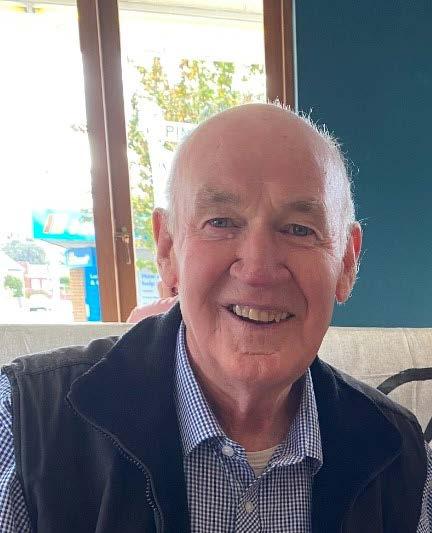Alumni Ambassadors Peter Headlam 1960s Alumni Ambassador (graduated 1968) Pete Headlam graduated in 1968 with a Bachelor of Agricultural Science and used it to carry on the legacy of his family’s six generations of sheep farming. “I am unsure that my success and enjoyment of farming resulted entirely from my years at university, but the resulting knowledge enhanced my skills, particularly in animal breeding, crop and pasture management and generated a scientific attitude to on farm experimentation and innovation,” he said. Pete looks back on his time at university and fondly remembers the friendships and field trips. “We all enjoyed the camaraderie generated by the field trips we did for animal production with Alan Bray and agronomy with Jim Yates over a number of years of the course and the lesser field trips associated with botany and geology taught by Professor Jackson, especially the time at the Cressy Ag Research Station,” he said. Pete said he was an early adopter of agricultural science as both a student and a farmer, as he dabbled in truffles, venison, wool processing and group breeding. “Over that time the Department of Agriculture, as a farmer’s educator, consultant and researcher has virtually disappeared but has been replaced by private enterprise who very successfully filled the gap and became valuable businesses contributing to our improved technologies and progress in agriculture,” he said. After a number of years solely on the family farm, Pete decided to try his hand at teaching. “The knowledge I learned allowed me the enthusiasm to apply for a part-time role as a lecturer at Tas Institute of Technology in the course business in agriculture, which not only diversified my income but which I thoroughly enjoyed doing,” he said.
▲ Peter Headlam “I constantly observed both the good and the bad that farming has on the environmental outcomes all over,” he said. “I feel that the increasing need to improve production has led to many positives, advanced machinery and plant varieties and culture but negatives of lack of diversity leading to unnecessary and destructive clearing of forests and replacing them with monocultures, such as palm sugar and salmon aquaculture.”
Pete’s consuming desire to travel has taken him to many countries across the world.
6 0 Y E A R S O F A G R I C U LT U R A L S C I E N C E
| 8





